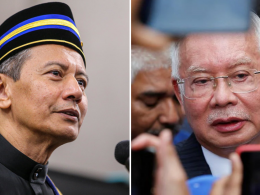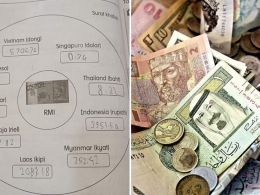There is no doubt that Malaysia’s modern legacy has been built upon the contributions and achievements of those who have paved the way ahead for us. And on this International Women’s Day, we tip our hats in salute to one of the most prominent female trailblazers in Malaysian legal history, Lim Beng Hong, otherwise better known as Mrs B.H. Oon.
Meet Mrs B.H. Oon, one of the most prolific women in Malaysian legal history
A native of Butterworth, Penang who was born in 1903 to a well-heeled merchant family, Mrs Oon went on to receive her education at the Government’s Girls’ School in Penang. Upon completing her studies, she would return to the school to teach for a period of three years, before subsequently making the decision to travel to England with her brother, Lim Khye Seng, to pursue a law degree.

She would go on to obtain her law degree from the University College of London, which also made her the very first ethnically Chinese woman to do so from the institution. But in order to become a fully-fledged lawyer, one would need to first be called to the Bar and undertake a separate examination. In Mrs Onn’s case, she was called to the Bar by Inner Temple in June 1926, on the very same evening as her brother.
Consequently, this would also make them the very first pair of siblings to be called to the English Bar on the same day.
A year later in 1927, she returned to Malaysia and would go on to marry Mr Oon Guan Yong, and went by the name of Mrs B.H. Oon. Contrary to the role that was expected of married women during the period, Mrs Oon went on to lead an active professional career after her marriage and joined the firm of Lim and Lim, Advocates and Solicitors. And while she had been called to the Bar in England, if she wished to practice law in Malaya, she would have to be called to the Bar here as well.
Became the first Asian female lawyer to practice law in the Straits Settlement
Bear in mind that at this juncture in history, British Malayan law forbade the admission of women to the Bar of the Straits Settlements and the Federated Malay States, as it was known at the time. This law was subsequently amended in 1927 for her sake, and Mrs Oon was made the first Asian woman to be admitted. In another fortuitous stroke, both she and her brother were once again called to the Bar the very same night in Malaya, just as they were back in England.
With that said, the amendment’s legality was called into question until 1935, when it was approved by the chief justice of the Kuala Lumpur Supreme Court.
When the Second World War broke out Southeast Asia, Mrs B.H. Oon left Penang and sought refuge in Singapore, which would also later fall under Japanese occupation. While Europeans were put into internment camps, Asians still retained some degree of freedom. As such, Mrs Oon would undertake the risky endeavour of smuggling letters written by Prisoners of War from Changi Prison.

After the war, Mrs Oon went on to be appointed as one of the two female members of the Federal Legislative Council, a precursor to Malaysia’s modern-day Parliament. Serving between the years of 1948 to 1955, she played an integral part in nation-building leading up to the country’s eventual independence from British occupation.
She would also transition into the world of politics by serving as a Labour Party of Malaya councilor in Butterworth, and founded its Women’s Charter to give female members a more prominent role and more rights.
Mrs B.H. Onn’s later years
In 1953, the British Empire recognised her contributions to Malaya by awarding Mrs Oon with an OBE (Order of the British Empire), the second highest ranking award in the Order after a CBE (Commander of the Order of the British Empire).

Following that in 1977, she held the distinction of being the first Malaysian woman to become president of the International Federation of Women Lawyers, a global non-governmental body that advocates for the status of both women and children through advocacy, law reform and research, while also providing legal aid as well as literacy.
Mrs B.H. Oon passed away in 1979. However, her family continues to be an influential force within the Malaysian legal scene, with her late son Peter Oon having served as Chairman of the Penang Bar Committee from 1976 to 1977, and her granddaughter Petra Oon becoming the first woman to take up the same role from 2002 to 2004.
Tap here to give us a ‘Like’ on Facebook and stay up-to-date on the latest news.








